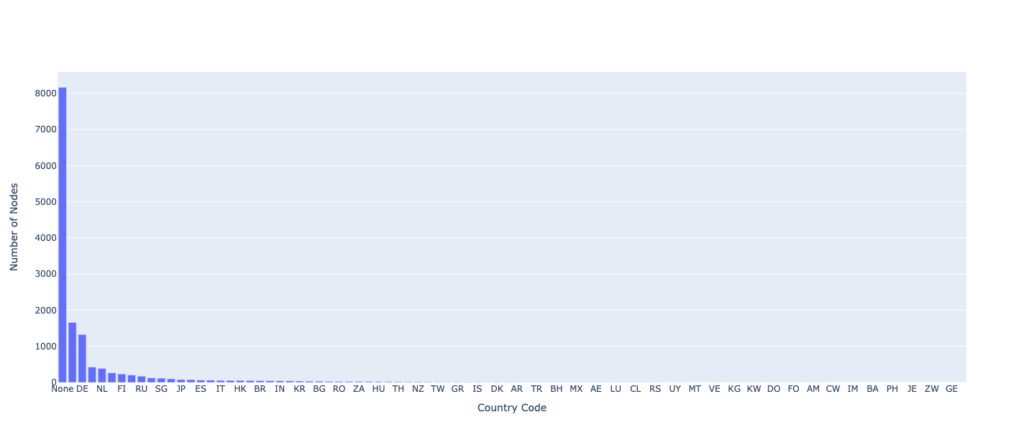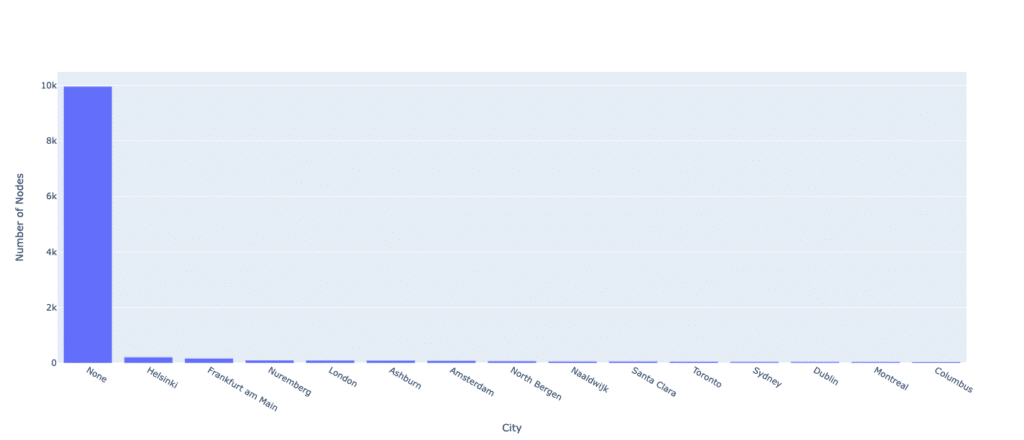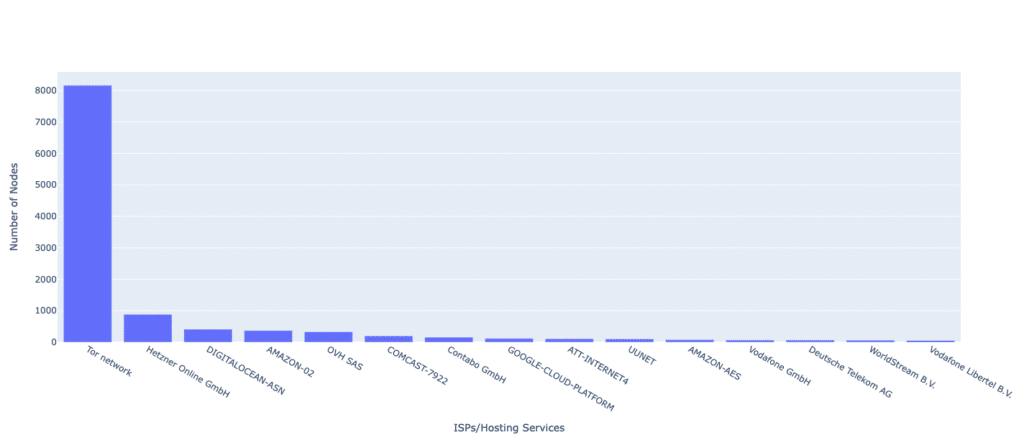Deep dive into BTC infrastructure shows most bitcoin nodes run through Tor

Data gathered from the Bitnodes application programming interface (API) shows that most bitcoin (BTC) nodes are routing traffic through the anonymous overlay network Tor.
Bitcoin is a decentralized digital currency that relies on nodes to verify and propagate transactions on its blockchain. Its network continues to grow and evolve.
Node location, internet service and hosting providers play a critical role in maintaining the security and reliability of the network. For instance, if nodes were overwhelmingly concentrated in one location, any regulatory action may significantly impact the network.
How bitcoin nodes stay anonymous
Recent data on the distribution of these nodes reveals insights into the growing importance attributed to privacy and anonymity among the more technical users of the bitcoin network, as well as the decentralized nature of the blockchain’s infrastructure.
The data shows that a significant portion of bitcoin nodes — 8,162 out of 14,838, nearly 82% — cannot be accurately located thanks to them routing their traffic through the Tor network.
This is a rather positive data point considering that we might consider those nodes primarily location agnostic since their operators are likely to ignore local regulation. Their anonymity would probably result in them skirting any enforcement action against bitcoin node operators. The portion of nodes operating through Tor also steadily increased from about 25% of all the nodes about one year ago, after a bug led to them crashing.
What is Tor browser?
The Tor network, also known as The Onion Router, is a system designed to protect users’ online privacy and anonymity. It routes internet traffic through a network of volunteer-run servers, encrypting it multiple times in the process. This makes it difficult for anyone to trace the origin of the traffic and identify the user.
Tor was originally developed by the US Navy in the mid-1990s and is now maintained by the Tor Project, a non-profit organization. Individuals, companies and governments widely use it to protect their online activities from surveillance and censorship.
Journalists, activists, and other groups working in hostile environments to protect their communications and online identities also use Tor. More famously, it hosts the so-called “darknet” with black markets and forums where criminals collaborate and exchange experiences and ideas.
How many bitcoin nodes are there in US and Europe?
Among the nodes that can be located, here are the top-3 countries:
— United States (1,662 nodes)
— Germany (1,328 nodes)
— France (425 nodes)

When looking at specific cities, Helsinki (211 nodes), Frankfurt (169 nodes) and Nuremberg (101 nodes) recorded the highest numbers of nodes, followed by London (99 nodes), Ashburn (94 nodes) and Amsterdam (86 nodes). This distribution of nodes across different cities and countries shows the decentralized nature of the bitcoin network, and the lack of a central point of failure.

Still, IP address geolocation accuracy is mostly hit or miss, especially based on publicly available data such as internet service provider information. IPs are often attributed to major cities in the same region or even the same country, so this data should be taken with a grain of salt.
Data hosting providers used by bitcoin nodes
The data on hosting service providers shows that a significant portion of nodes is hosted by Hetzner Online GmbH (884 nodes) and DIGITALOCEAN-ASN (414 nodes), followed by AMAZON-02 (372), OVH SAS (331 nodes), COMCAST-7922 (199 nodes) and Contabo GmbH (159 nodes).

It is particularly notable that Hetzner, Digital Ocean, Contabo, Amazon — through their Amazon Web Service offering — and OVH are virtual private server (VPS) providers that rent virtual machines to users who then can use them to run internet-connected software 24/7 on as long as they pay the fees.
Those are the least decentralized nodes. All it would take for Hetzner to change its company policy to forbid bitcoin nodes, and the network would lose 884 nodes in an instant. Also, these nodes are particularly vulnerable to regulation, since the firms running the nodes would most likely comply with any local law without hesitation. All those nodes would be an expected loss if the regulatory landscape were to turn hostile.
Overall, the data on the distribution of bitcoin nodes shows the growing importance of privacy and anonymity within the network and the decentralized nature of the infrastructure supporting it. The findings also follow recent data showing that bitcoin continues to leave centralized exchanges as holders continue holding onto their coins.
















